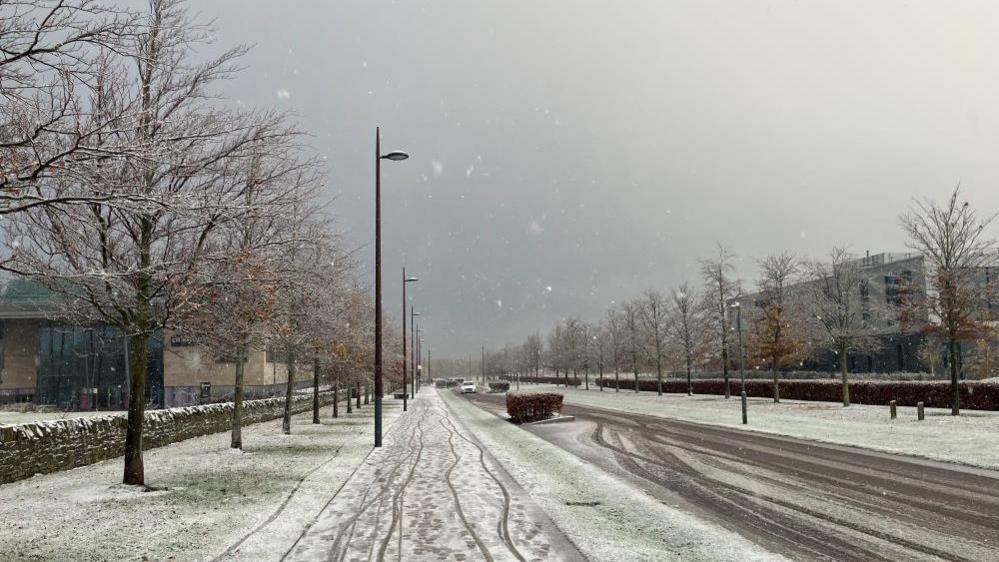Disruption warning as four days of snow and ice on the way
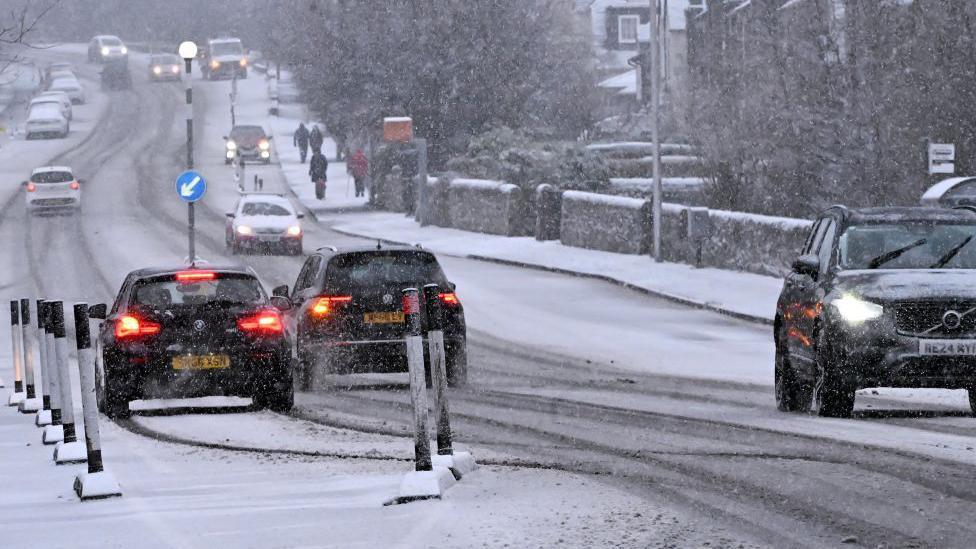
Snow and ice is expected across much of northern Scotland until Thursday
- Published
Much of Scotland is facing four days of disruption as a band of snow and ice moves in across the country.
The Met Office has issued a yellow warning of possible ice for Grampian and the Highlands from Monday evening until Tuesday morning.
The same area is covered by a yellow warning for snow and ice from Tuesday evening until Thursday night.
That warning also covers Strathclyde, Central Scotland, Tayside and Fife, and Orkney and Shetland.
A third yellow warning, running from 05:00 on Tuesday until midday, covers areas including the Lothians.
The first snowfall of the winter season hit parts of the Highlands last week.
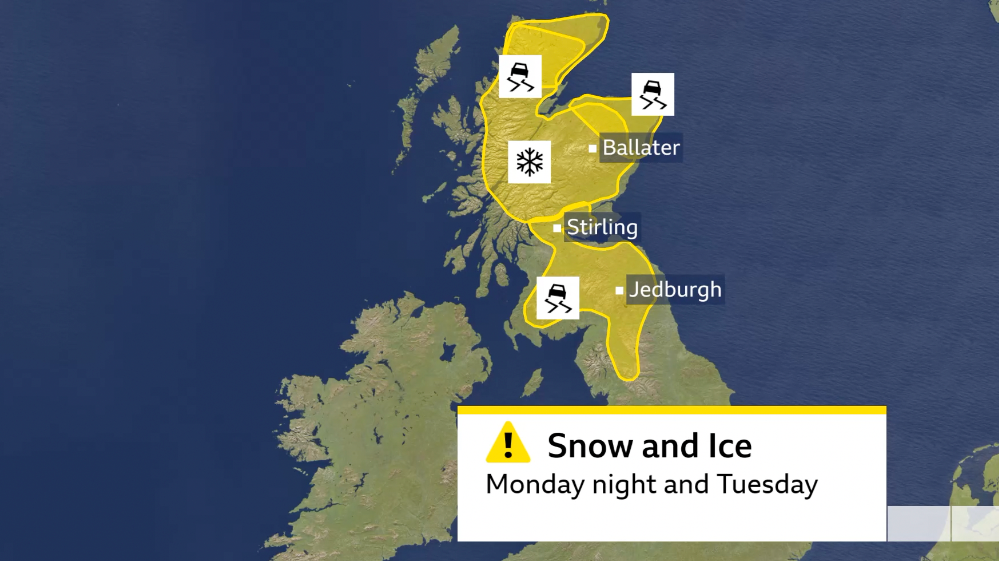
Snow and ice yellow Met Office warnings for Monday night into Tuesday
The Met Office warned on Monday: "Keep yourself and your family safe when it is icy. Plan to leave the house at least five minutes earlier than normal. Not needing to rush reduces your risk of accidents, slips, and falls.
"If you need to make a journey on foot, try to use pavements along main roads which are likely to be less slippery. Similarly, if cycling, try and stick to main roads which are more likely to have been treated.
"Give yourself the best chance of avoiding delays by checking road conditions if driving, or bus and train timetables, amending your travel plans if necessary."
How prepared is Scotland for severe weather over the winter?
- Published4 days ago
Meteorologist Clare Nasir told the BBC Radio's Good Morning Scotland programme the coming weather would bring a combination of very cold air and strong winds.
She said it had been "exceptionally" mild through the beginning of November but there had also been "copious" amount of rain.
This meant there was an increased risk of ice through the coming week with sub-zero temperatures causing lying water to freeze.
She forecast that that there could be enough snow to cause disruption, especially in the Highlands.
"Winter has arrived early" she said.
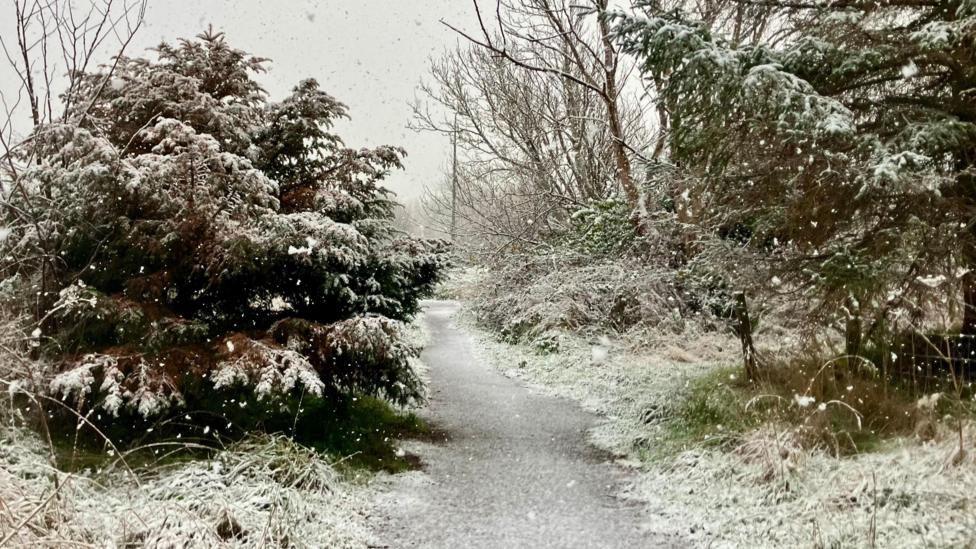
The first snowfall of the winter season hit parts of the Highlands last week
November has so far been considerably milder than previous years.
Typical overnight temperatures at this time of year range from 2C in Scotland to 5C in the south of England.
During the first week in November they rarely fell into single figures, instead hovering at about 10C to 14C.
Last November, temperatures below -10C were recorded in some parts of northern Scotland, including Braemar in Aberdeenshire which reached a low of -11.2C.
The last time -10.9C or lower was recorded on or before 19 November was in 1998.
Last week, Scottish transport operators outlined their winter resilience plans.
This included stocking up on 497,000 tonnes of salt - more than was used for the entirety of last winter - and preparing 240 gritters to undertake salt spreading and snow ploughing patrols of the trunk road network.
Winter in Scotland officially runs from December to February, but in recent years wintry conditions have lasted as late into the year as May.
- Attribution
- Published5 hours ago
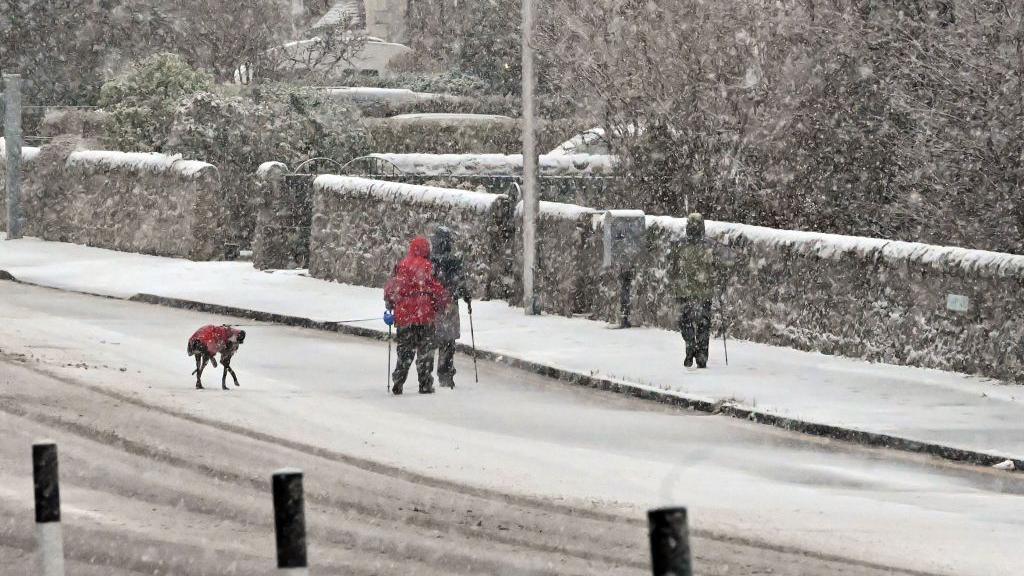
- Attribution
- Published2 days ago
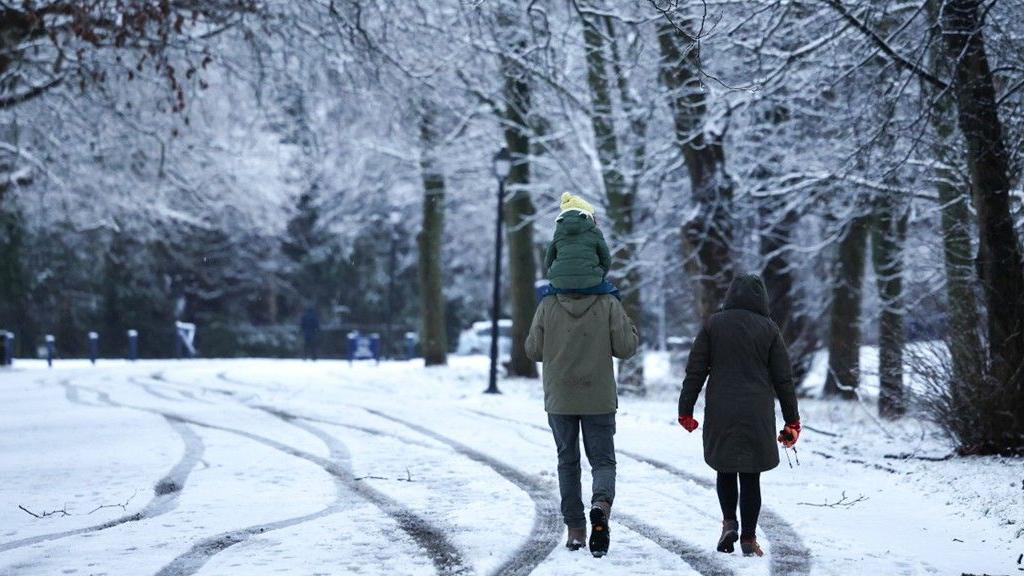
- Published3 days ago
